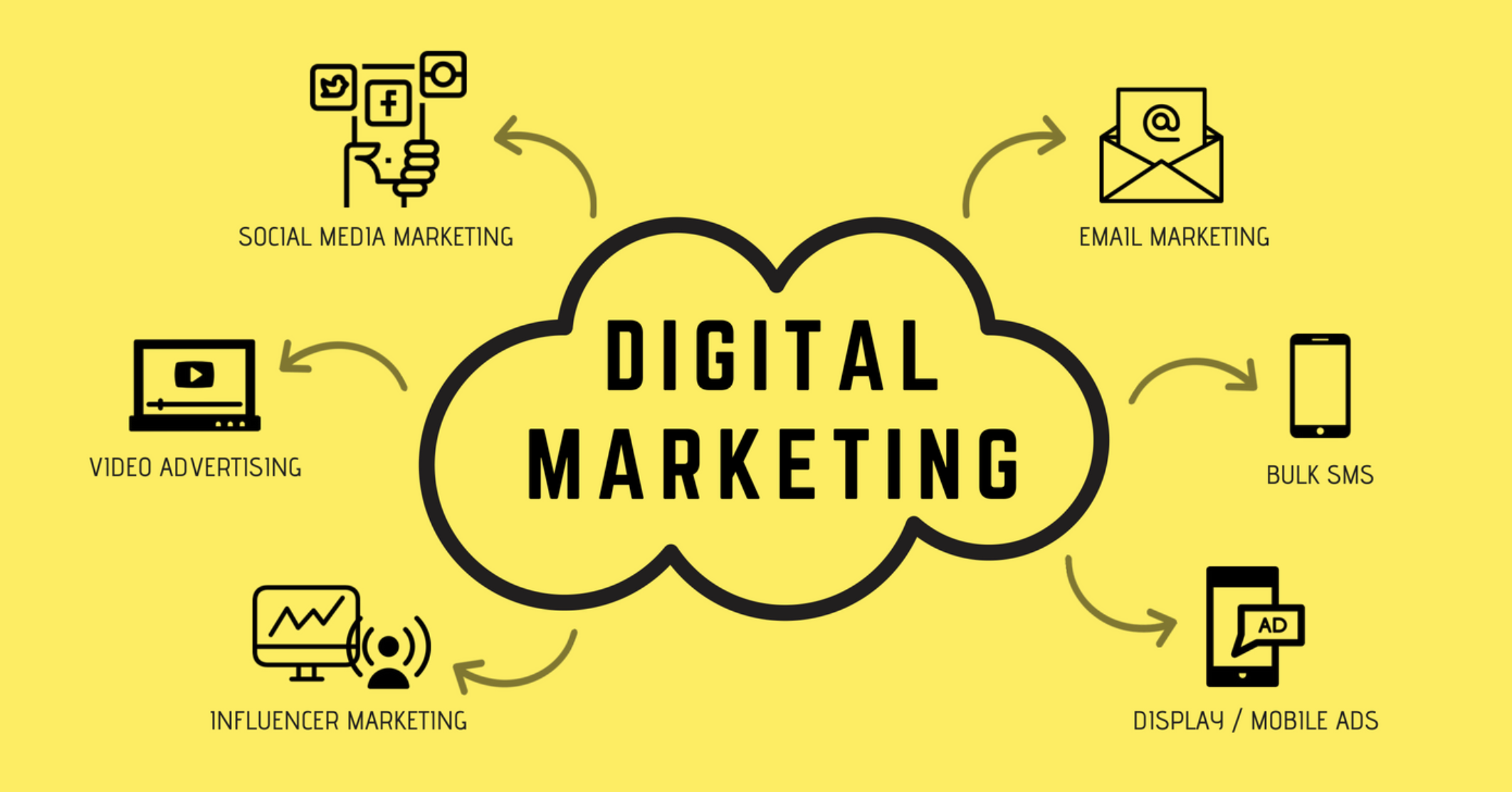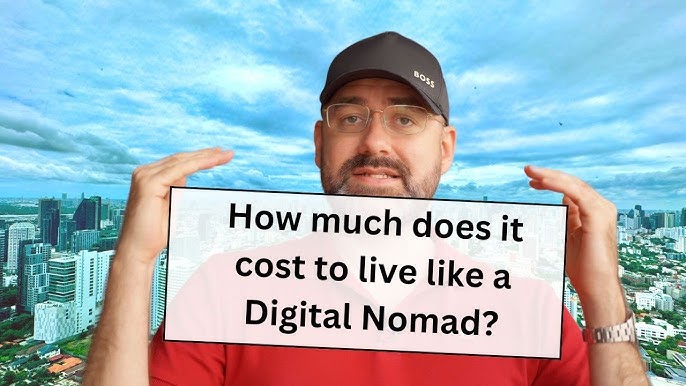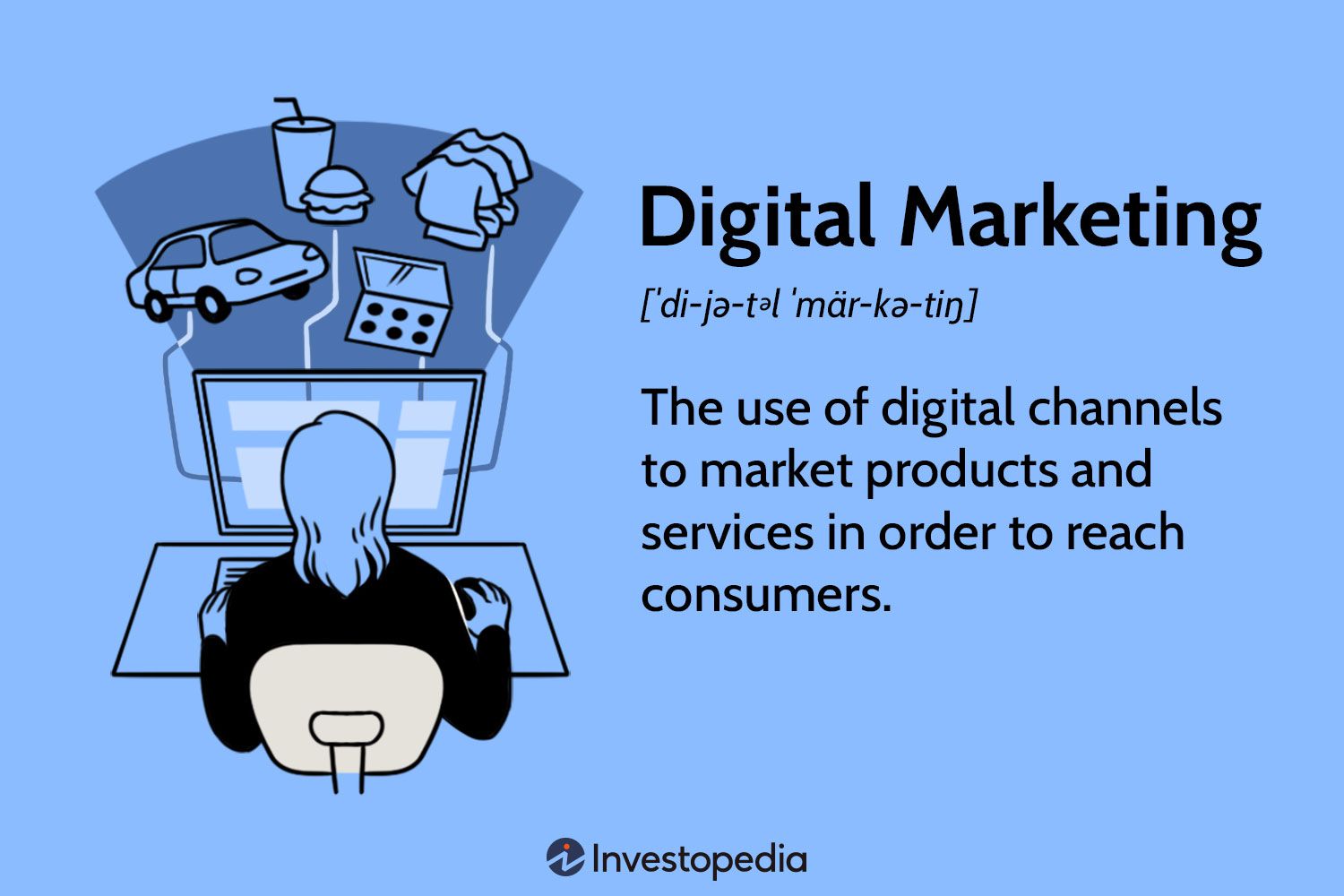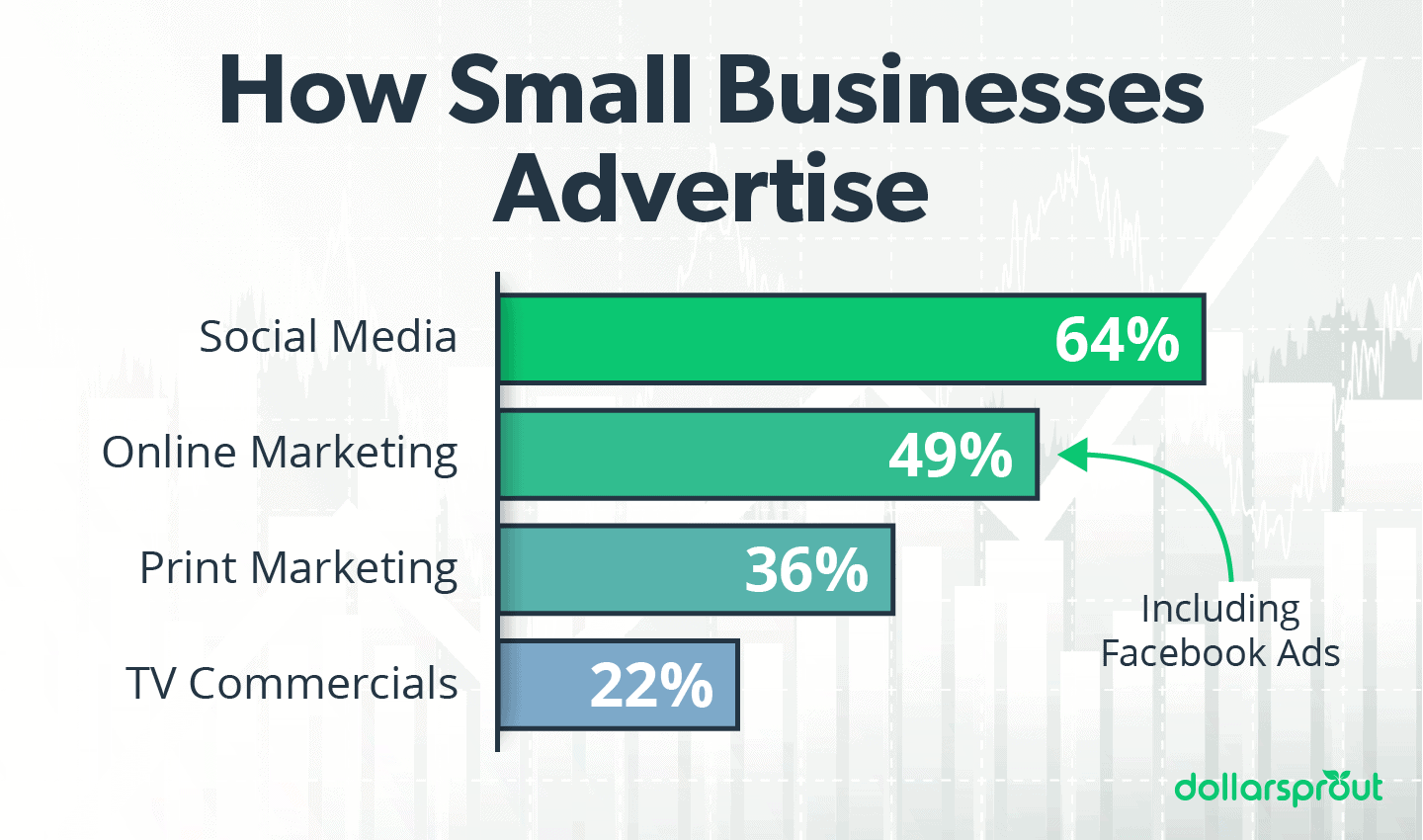Digital marketing is promoting products using digital channels. It includes online platforms like social media, websites, and email.
Today, businesses harness digital marketing to reach wider audiences. This approach helps brands connect with people worldwide. With its growing importance, understanding digital marketing is vital. It offers tools to track customer behavior and tailor messages. Small businesses find it cost-effective and flexible.
But newcomers often make mistakes. They may target the wrong audience or ignore analytics. Starting with digital marketing involves learning key strategies. These include SEO, content creation, and social media management. Each step builds a strong online presence. This introduction sets the stage to explore digital marketing further. Dive in to learn more about its components and benefits.

Credit: www.springboard.com
The Core Components Of Digital Marketing
Digital marketing involves promoting products or services online. It includes social media, email, and search engine marketing. These core components help businesses connect with their audience effectively.
Digital marketing is like an ocean of opportunities for businesses today. It connects brands to their audience online, where most people spend time. Let’s dive into its core components to understand how it all works.
Search Engine Optimization (seo)
SEO helps websites rank higher in search results. It’s crucial for visibility.
- Keywords: Words and phrases users search for.
- On-page SEO: Optimizing content and HTML source code.
- Off-page SEO: Building links and social media marketing.
- Technical SEO: Improving site speed and mobile-friendliness.
Content Marketing
Content marketing involves creating valuable content to attract and engage audiences.
- Blog Posts: Informative articles about industry topics.
- Videos: Visual content that explains or entertains.
- Infographics: Visual representations of data.
- Ebooks and Guides: In-depth resources for learning.
Social Media Marketing
Social media platforms are where brands interact with their audience.
- Engagement: Liking, commenting, and sharing content.
- Advertising: Paid promotions to reach a larger audience.
- Community Building: Creating a loyal group of followers.
- Influencer Collaboration: Partnering with popular figures.
Email Marketing
Email marketing is a direct way to reach customers. It’s personal and effective.
- Newsletters: Regular updates and valuable information.
- Promotional Emails: Special offers and discounts.
- Welcome Series: Greetings for new subscribers.
- Re-engagement: Encouraging inactive users to return.
Pay-per-click (ppc) Advertising
PPC ads appear at the top of search results. Businesses pay for each click.
- Google Ads: Ads on Google search results.
- Display Ads: Visual ads on websites.
- Social Media Ads: Ads on platforms like Facebook and Instagram.
- Targeting: Reaching specific demographics.
Affiliate Marketing
Affiliate marketing involves promoting products for a commission.
- Partnerships: Collaborating with individuals or companies.
- Tracking Links: Monitoring sales through specific URLs.
- Commission Structures: Percentage-based earnings.
- Content Creation: Crafting reviews and recommendations.
Influencer Marketing
Influencers have a strong online presence. Brands use them to reach audiences.
- Authenticity: Genuine promotion of products.
- Reach: Access to a large follower base.
- Engagement: High interaction rates.
- Trust: Influencers build credibility with audiences.
Online Public Relations (pr)
Online PR enhances a brand’s reputation. It manages online communications.
- Press Releases: Announcements about new products or events.
- Media Outreach: Engaging with journalists and bloggers.
- Crisis Management: Handling negative publicity.
- Reputation Monitoring: Tracking brand mentions online.
Digital marketing continues to evolve with technology. Understanding these components is key for success.
How Digital Marketing Works In Real Life
Digital marketing connects businesses with their audience online. It uses tools like social media, email, and SEO. These methods help reach customers, promote products, and track results quickly.
Digital marketing is a force that shapes today’s business landscape. It connects brands with their audience online. But how does it work in practice? Let’s dive into real-world scenarios where digital marketing plays a crucial role.
Building Brand Awareness
Digital marketing boosts brand visibility. It introduces your brand to potential customers.
- Social media: It creates a platform for brands to engage with audiences.
- Content marketing: It delivers valuable information to attract and retain customers.
- Search engine optimization (SEO): It improves your site’s ranking on search engines.
Engaging With Customers
Digital marketing keeps customers engaged through various channels. This ongoing interaction builds lasting relationships.
Live chats on websites offer instant support. They provide quick answers to customer queries. Email newsletters share updates and exclusive offers. They keep subscribers informed and interested.
Driving Sales
The end goal of digital marketing is often to increase sales. It uses several strategies to achieve this.
- Pay-per-click advertising (PPC): It targets specific audiences with ads.
- Influencer partnerships: They leverage popular personalities to promote products.
- Retargeting: It reminds users of products they viewed but didn’t purchase.
Analyzing And Improving Performance
Digital marketing thrives on data. Analyzing this data helps improve strategies for better results.
Marketers use analytics tools to track campaign performance. These tools reveal what works and what doesn’t. Adjustments are made based on data insights to boost effectiveness.
Adapting To Trends
Staying current is vital in digital marketing. It requires adapting to new trends and technologies.
Marketers follow industry updates to stay informed. They experiment with new platforms and features. This keeps their strategies fresh and effective.
Digital Marketing Benefits For Small Businesses
Digital marketing uses the internet to promote products or services. Small businesses can reach more customers online. It offers cost-effective advertising options and helps track customer behavior easily.
Digital marketing is a lifeline for small businesses today. It levels the playing field, making it possible to compete with larger companies. By reaching customers online, small businesses can expand their audience and build brand awareness. Let’s explore how digital marketing benefits small businesses.
Cost-effective Marketing
Small businesses often have limited budgets. Digital marketing offers cost-effective solutions.
- Lower Costs: Online ads and social media marketing are cheaper than traditional methods.
- Targeted Reach: Ads can target specific demographics, ensuring money is well spent.
- Flexible Budgets: Small businesses can start with low budgets and scale up as needed.
Enhanced Customer Engagement
Connecting with customers is vital. Digital marketing provides tools for direct interaction.
Through social media platforms, businesses engage with their audience in real-time. This interaction builds customer trust and loyalty. Customers appreciate prompt responses and personal interaction, which strengthens the business-customer relationship.
Measurable Results
Tracking marketing efforts is crucial for success. Digital marketing offers measurable outcomes.
- Analytics Tools: Platforms like Google Analytics track website performance.
- Campaign Performance: Businesses can see which ads work and adjust strategies.
- Customer Insights: Data helps understand customer behavior and preferences.
Global Reach
Digital marketing breaks geographical barriers. Small businesses can access a global market.
With an online presence, businesses reach customers worldwide. This opens doors to new markets and opportunities. Even a small local shop can attract international customers through digital channels.
Improved Conversion Rates
Digital marketing strategies can boost conversion rates.
- SEO Optimization: Helps websites rank higher, increasing visibility.
- Call-to-Action: Encourages visitors to take specific actions, like buying.
- A/B Testing: Experiments with different tactics to find what works best.
Better Customer Relationships
Building strong relationships is key for any business. Digital marketing enhances this process.
Email marketing and personalized content keep customers informed and engaged. Regular updates and personalized offers make customers feel valued. This ongoing communication fosters loyalty and long-term connections.
Common Mistakes Beginners Make
Navigating digital marketing can be tricky for beginners. Many often overlook the importance of understanding their target audience. Others might spread their focus too thin across various platforms, diluting effectiveness.
Digital marketing can be a thrilling journey for newcomers. Yet, it’s easy to stumble over common pitfalls. Understanding these errors can save time and resources, steering you toward success. Let’s explore some typical mistakes beginners often face.
Overlooking Target Audience
Many beginners miss the mark by not focusing on their audience. Knowing your audience is key to effective marketing.
- Lack of research: Beginners may skip researching who they are marketing to.
- Broad targeting: Trying to reach everyone leads to diluted messages.
- Ignoring feedback: Feedback helps refine strategies and improve engagement.
Neglecting Analytics
Some newcomers ignore valuable data that guides marketing efforts. Analytics are essential for understanding what works.
- Not tracking: Failing to track results hinders improvement.
- Misinterpreting data: Incorrect conclusions lead to poor decisions.
- Skipping tools: Tools simplify data analysis and insights.
Inconsistent Branding
Brand consistency is crucial. Inconsistent branding confuses potential customers.
A strong brand identity fosters trust and recognition. Beginners often struggle with maintaining uniformity across platforms and content.
Ineffective Content Strategy
Crafting engaging content requires planning. Without a solid strategy, efforts may fall flat.
- Random posting: Posting without a plan misses opportunities.
- Ignoring SEO: SEO boosts visibility and attracts more traffic.
- Lack of value: Content should offer value to the audience.
Mismanaging Social Media
Social media needs careful attention. Beginners can mismanage these platforms easily.
- Overposting: Too many posts overwhelm followers.
- Underposting: Few posts lead to disengagement.
- Not engaging: Interaction builds community and loyalty.
Overlooking Mobile Optimization
Mobile optimization is essential today. Many beginners forget this crucial step.
With more users on mobile devices, optimizing for mobile is vital. A mobile-friendly site enhances user experience and boosts search rankings.
How To Get Started With Digital Marketing (step-by-step)
Digital marketing uses the internet to promote products or services. It involves strategies like social media, email, and content marketing. Understanding its basics helps you reach your audience effectively.
Starting your journey in digital marketing can feel overwhelming. With countless strategies and tools available, it’s crucial to know where to begin. Let’s dive into the steps to get started with digital marketing effectively.
Understanding Your Audience
Knowing who your audience is forms the foundation of your strategy.
- Identify demographics: Determine age, gender, and location.
- Discover interests: Understand what engages your audience.
- Analyze behaviors: Observe how they interact online.
Setting Clear Goals
Crafting specific goals guides your digital marketing efforts.
Begin by defining what you want to achieve. Do you aim to boost brand awareness or increase sales? Clear objectives direct your strategies and help measure success.
Choosing The Right Channels
Selecting appropriate channels is essential to reach your audience.
- Social media platforms: Choose based on audience preference.
- Email marketing: Engage customers directly in their inbox.
- Content marketing: Educate and attract through informative content.
Creating Quality Content
Quality content is key to engaging your audience.
Focus on producing relevant, engaging material. Whether through blog posts, videos, or infographics, content should inform and inspire, reflecting your brand’s voice.
Measuring And Analyzing Results
Tracking performance ensures continuous improvement.
- Use analytics tools: Monitor website traffic and engagement.
- Set KPIs: Define key performance indicators to measure success.
- Adjust strategies: Optimize based on insights and data.
Starting with these steps simplifies digital marketing. Begin with understanding your audience and setting goals. Choose channels wisely, create quality content, and measure results to refine your strategy.
Final Thoughts
Understanding digital marketing helps businesses connect online. It involves using the internet to promote products and services. Engaging with audiences through digital channels is essential for modern success.
Digital marketing is a powerful tool in today’s business world. It offers endless opportunities for growth and engagement. From social media to email campaigns, the possibilities are vast. As technology evolves, so does the potential of digital marketing. It’s an exciting field with much to offer.
Importance Of Digital Marketing
Digital marketing is crucial for any modern business. Here are key reasons why:
- Reach a wider audience: Businesses can connect with customers globally.
- Cost-effective: It often costs less than traditional marketing methods.
- Measurable results: Track the effectiveness of campaigns in real-time.
- Enhanced engagement: Interact directly with your target audience.
- Flexibility: Adapt strategies quickly based on performance data.
Challenges In Digital Marketing
Despite its benefits, digital marketing has its challenges. Understanding these can help businesses navigate the landscape effectively.
- Rapid changes: The digital world evolves quickly, requiring constant adaptation.
- High competition: Standing out online requires creativity and strategy.
- Data privacy concerns: Ensuring customer data is protected is essential.
Future Of Digital Marketing
The future of digital marketing looks promising. With advancements in technology, new opportunities will emerge.
- Artificial intelligence: AI will play a larger role in personalizing content.
- Voice search: Optimizing for voice search will become more important.
- Video content: The demand for video content will continue to rise.
Tips For Successful Digital Marketing
Implementing effective strategies is key to success. Here are some tips to consider:
- Know your audience: Understand their needs and preferences.
- Create quality content: Focus on providing value and relevance.
- Use analytics: Monitor performance and adjust strategies accordingly.
- Stay updated: Keep up with trends and technological advancements.
Digital marketing is an ever-evolving field. It requires businesses to stay informed and adaptable. With the right strategies, it can drive significant growth and engagement.

Credit: www.salesforce.com
Frequently Asked Questions
What Is Digital Marketing In Simple Words?
Digital marketing promotes products or services using online platforms like social media, websites, and email. It targets specific audiences through data-driven strategies, enhancing brand visibility and customer engagement.
What Are The 7 Types Of Digital Marketing?
The 7 types of digital marketing are Search Engine Optimization (SEO), Content Marketing, Social Media Marketing, Pay-Per-Click Advertising (PPC), Email Marketing, Affiliate Marketing, and Influencer Marketing. Each type offers unique strategies to reach and engage target audiences online effectively.
How Do I Make Money From Digital Marketing?
Earn money through digital marketing by offering services like SEO, content creation, and social media management. Sell digital products or courses, affiliate marketing, or run paid ads. Build a strong personal brand, grow your audience, and monetize through sponsorships or partnerships.
What Do Digital Marketers Do?
Digital marketers create and implement online strategies to promote brands. They use SEO, social media, and paid ads. They analyze data to improve campaigns and increase engagement. Their goal is to drive website traffic and boost conversions. They stay updated on trends to maintain competitiveness.
Conclusion
Digital marketing connects businesses to the online world. It includes social media, email, SEO, and more. Each tool helps reach specific audiences and goals. Small businesses can grow by using digital strategies wisely. Avoid common mistakes like ignoring analytics and trends.
Start by learning basics and setting clear goals. Practice makes perfect in this evolving field. Remember, digital marketing is about understanding and engaging with people online. Keep your strategies simple and effective. Stay updated to succeed in the digital space.






